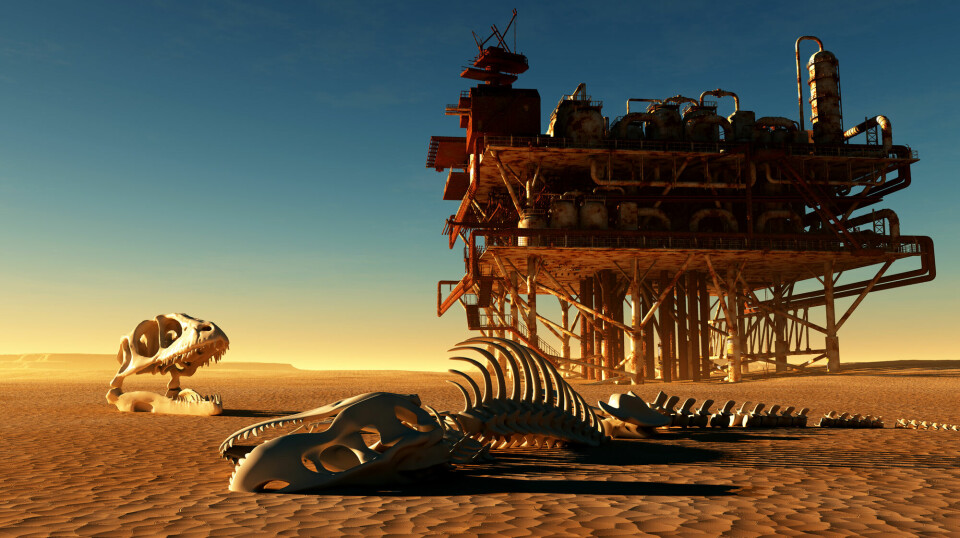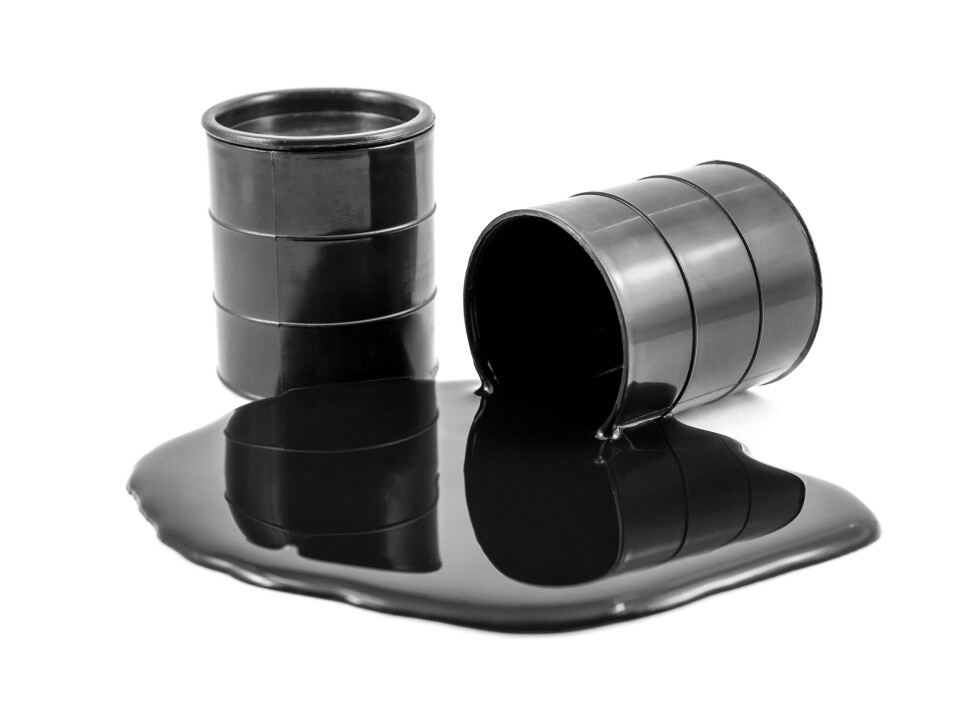
No, oil does not come from dinosaurs
“This myth must be debunked,” says Norwegian geologist
Have you ever thought about where all the oil under the North Sea comes from?
Whether you have wondered or not: The myth surrounding where this oil comes from is alive and well.
Many people believe that oil comes from dead dinosaurs. But that is wrong.

Algae and plankton
Sciencenorway.no has talked to the geologist Reidar Müller from the University of Oslo.
He has tried to debunk this particular dinosaur myth.
“For some strange reason, the idea that oil comes from dinosaurs has stuck with many people. But oil comes from trillions of tiny algae and plankton,” says Reidar.
“When algae and plankton in the sea died, they sank to the sea bottom,” he said.
These residues accumulated in thick layers on the sea bottom, and over time were covered with clay and sand.
Eventually, they were a few kilometres below the ground. Here the temperature was between 60 and 120 degrees C and the pressure from the weight of all the sediments ‘cooked’ the algae and plankton.
The oil that resulted trickled out of the layers and flowed upwards until it hit a dense rock layer.
The rock layer acted as a lid, which is what oil companies drill through to reach the oil.
Pure fantasy
Is it important to debunk the dinosaur myth?
“Yes, I think so,” says Reidar.

He thinks Norwegians should know where the oil in their country comes from, in the same way that they know that Edvard Munch painted the Scream and that the country’s Constitution was adopted in 1814.
“Oil has been important to us, so we should know where it comes from,” Reidar said.
“It sounds cool to say that oil is a kind of dinosaur soup, but this is pure fantasy,” he says.
Found a dinosaur bone
Where does the dinosaur myth come from?
“It’s difficult to say,” he says.
He said that a single dinosaur bone was once found in an oil well in Norway.
Could there be a little dinosaur in the oil?
“We have found skeletons of large prehistoric reptiles, such as plesiosaurs and ichthyosaurs, in the same layer as the oil that is found on Svalbard. It’s possible that a little oil may have come from them,” says Reidar.
You could turn into oil, but the chances are slim
If plankton and reptiles can become oil - can humans become oil too?
“Yes. If we humans had piled up in a big clump on the ocean floor and stayed there for a long time, we could have become oil. We would also have to be covered by a thick layer of sand and lie there for a very long time,” says Reidar.
Most likely our bodies would have been eaten by other animals before we could turn into oil.
The plankton and the algae that were transformed into oil 150 million years ago, on the other hand, were not eaten.
“There was not much oxygen in the sea off Norway at that time. This meant that there was not much life on the seabed,” says Reidar.
Dead plankton sank onto the sea floor in thick layers, and then turned into oil.
Why is there a shortage of oil? Aren’t there still plankton and algae that can turn into oil over the long run?
“When we talk about running out of oil, the problem is that we are extracting the oil faster than new oil is made. After a while the oil field becomes too empty for it to be profitable to extract what’s left,” Reidar said.
Norway not alone
The myth that oil comes from dinosaurs is found elsewhere, too. This video from TikTok has had more than 120,000 likes.
“If oil is made from dinosaur fossils ... and plastic is made from oil ... are plastic dinosaurs made from real dinosaurs?” asks the TikTok artist.
@ryryozzy we askin the real questions here #dinosaurs #utah #fyp #mystery #oil ♬ Ameno hatsune miku - Hybrid theorist
Translated by Nancy Bazilchuk
———
Read the Norwegian version of this article at forskning.no
































